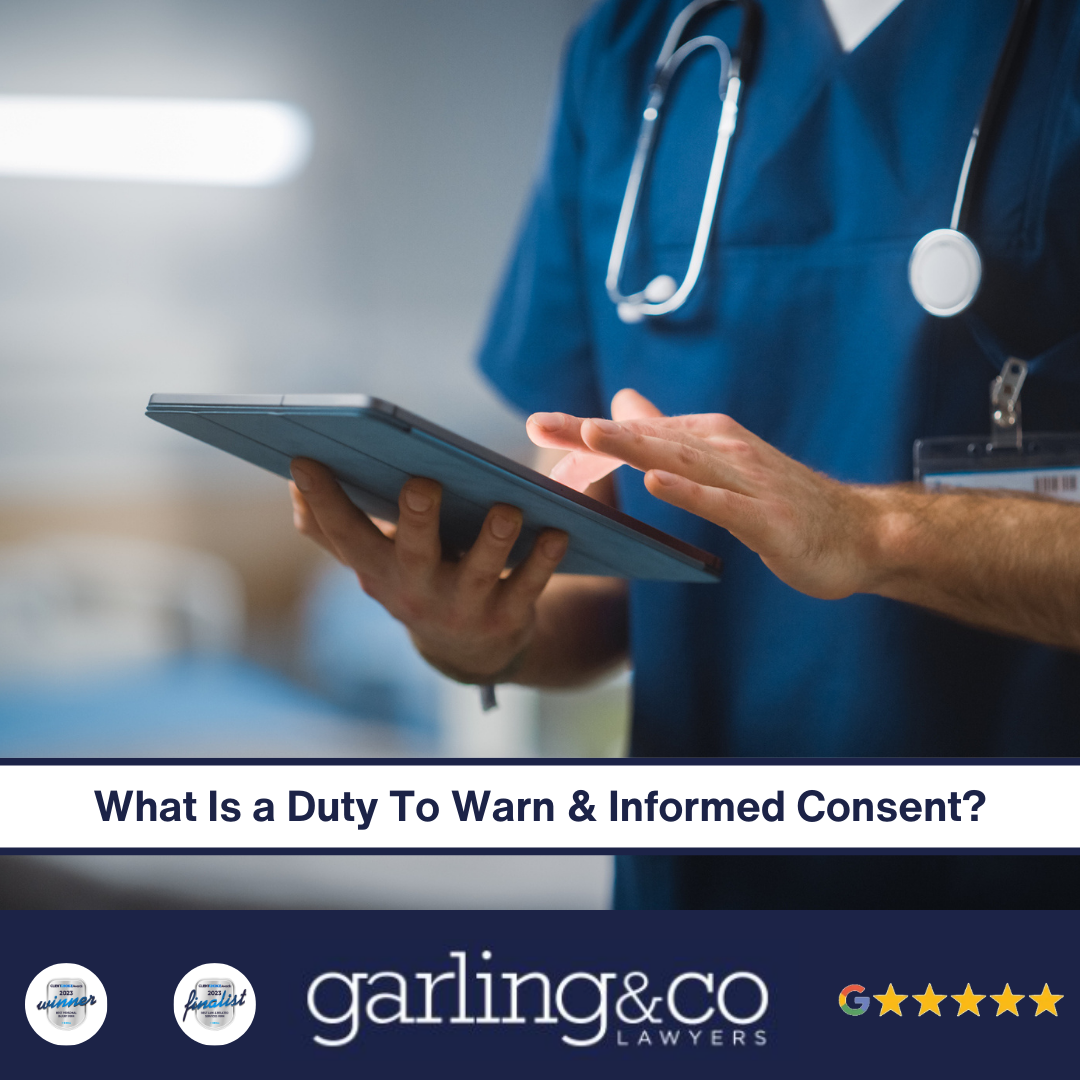
If the practitioner has failed to warn a patient of the risk this may result in a lack of informed consent.
Can I make a claim if the doctor failed to warn or obtain my informed consent?
If treatment or a procedure is done without informed consent it is known as trespass to the person and is compensable at law. Noting the exception for emergency treatment.
When must a practitioner warn a patient?
All medical negligence (medical malpractice) claims are governed by the Civil Liability Act 2002 (CLA). Section 5H of the Act provides that a practitioner does not have a proactive duty to warn a patient of an obvious risk. An obvious risk is defined by legislation as a “common knowledge” risk.
It was established in Rogers v Whitaker (1992) 175 CLR 479 that practitioners must warn their patients of risks that would in that particular circumstances be of significance to that patient.
How does the duty to warn apply?
If you suffer an injury as a result of an obvious risk and you were not warned you will not be able to make a medical negligence claim as you will be precluded under section 5H.
While it is well established in case law that a practitioner has a duty to warn, duty to warn cases are very difficult to win as the risks that the practitioner has a duty to warn about depend solely on the individual circumstances of the particular case. There is no set list of risks that practitioners must warn patients of. Therefore, each case must be assessed on an individual basis. For example, the duty to warn in emergencies is very different to the duty to warn of risks associated with elective treatment.
How to win my case?
To be successful in your failure to warn case you will need to prove the following:
- The practitioner owed you a duty to warn
- You will need to prove that the duty was not an obvious risk
- You will need to prove that in your circumstances the risk was of significance to you
- The practitioner breached that duty to warn
- You will need to prove that the practitioner did not warn you and you were not informed
- The risk was not insignificant, and that injury was sustained
- You will need to prove that the risk suffered was directly caused by the materialisation of the risk and not some other complication or condition/comorbidity
- You would not have agreed to the surgery had you been informed of the risk
See our article What do I Need to Prove to be Successful in my Medical Negligence case?
Why are these cases so difficult?
There are numerous elements that must be satisfied to be successful in a failure to warn case. The element that makes these cases so difficulty to win is the fourth element, that you would not have undergone the surgery had you know of the risk. In effect you need to prove your “pre-injury mindset” which is very difficult to do, as in hindsight most people would wish things to have gone differently, but at the time lacked the foresight to actively make an alternate decision. This evidence is crucial to your claim. This evidence cannot be given by way of a written statement or an oral submission. Strong evidence must be adduced to support the position that had you known you would not have had the treatment. If you cannot prove the fourth element you will lose your case.
Duty to warn cases are very complex and are often difficult to win. If you believe you have a failure to warn case contact Garling & Co or complete a free case assessment here.












